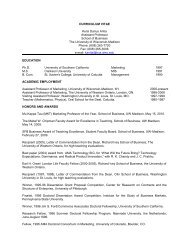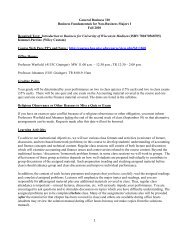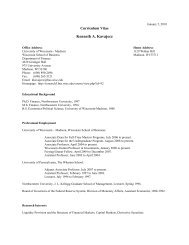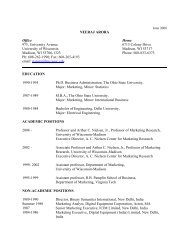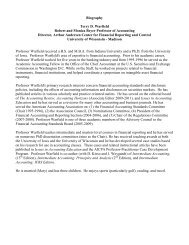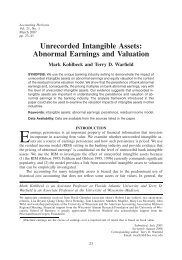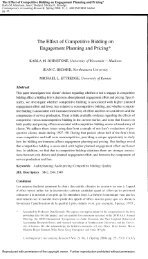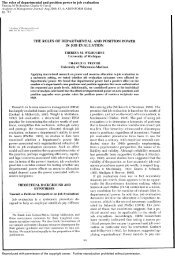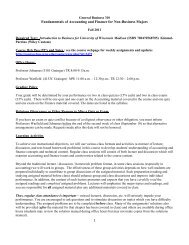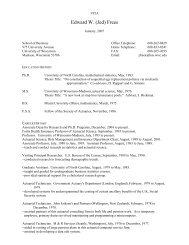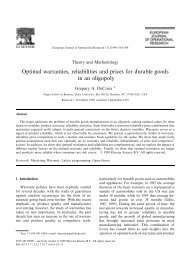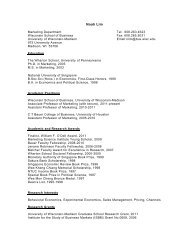family legacies - Wisconsin School of Business - University of ...
family legacies - Wisconsin School of Business - University of ...
family legacies - Wisconsin School of Business - University of ...
You also want an ePaper? Increase the reach of your titles
YUMPU automatically turns print PDFs into web optimized ePapers that Google loves.
Family Legacies<br />
<strong>family</strong> members both modified and sustained their <strong>family</strong> <strong>legacies</strong>, enacting some <strong>of</strong> their <strong>family</strong><br />
<strong>legacies</strong> in their everyday lives. Collectively, then, the results <strong>of</strong> this study both support and<br />
extend narrative research.<br />
Initially, the stories <strong>family</strong> members told during the interviews illustrate the importance <strong>of</strong><br />
context in the storytelling process (Nelson, 2004; Stanley & Billig, 2004) Who tells the stories<br />
and when they are told represent key contextual factors in the storytelling process. Two specific<br />
contextual factors merit discussion. First, the interviews themselves represented the conditions <strong>of</strong><br />
storytelling (Archakis & Tzanne, 2005). As narrative scholars have argued, the interview process<br />
constrains the narrative process (Archakis & Tzanne, 2005; Bamberg, 2006; Watson, 2007). In<br />
this study, the interview context affected the storytelling process as participants constructed<br />
<strong>family</strong> stories in response to the questions we posed, <strong>of</strong>fering them as evidence to support the<br />
<strong>legacies</strong> they listed rather than telling the stories within the <strong>family</strong> context. This <strong>of</strong>fers one<br />
explanation as to why participants struggled in many instances to come up with and tell <strong>family</strong><br />
stories. Narrative scholars should take note <strong>of</strong> the difficulty that participants can display in<br />
telling stories in the interview context and to fully understand what constitutes a story. The<br />
interview context may have also influenced the predominance <strong>of</strong> positive <strong>legacies</strong>, as<br />
participants made efforts to portray their <strong>family</strong> (and themselves) in a positive nature. As<br />
narrative scholars suggest, in the interview context storytellers can be particularly selective in<br />
how they tell their <strong>family</strong> stories and try to portray them in social and culturally acceptable ways<br />
(Archakis & Tzanne, 2005). Researchers must be careful in taking participants’ responses about<br />
their individual and <strong>family</strong> identity at face value (Archakis & Tzanne, 2005; Bamberg, 2004;<br />
Kraus, 2006; Watson, 2007), which was especially important in this research in light <strong>of</strong> the<br />
influence cultural upbringing appears to have had in the <strong>legacies</strong> third generation <strong>family</strong><br />
31



